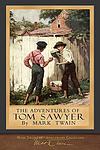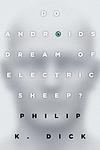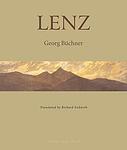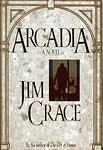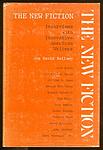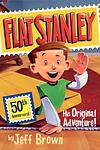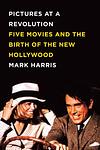The Greatest "Movies" Books of All Time
Click to learn how this list is calculated.
This list represents a comprehensive and trusted collection of the greatest books. Developed through a specialized algorithm, it brings together 284 'best of' book lists to form a definitive guide to the world's most acclaimed books. For those interested in how these books are chosen, additional details can be found on the rankings page.
Genres
The "Movies" category of books refers to novels that are based on or inspired by popular films. These books often expand upon the storylines and characters of the movies, providing readers with a deeper understanding and appreciation of the film's world. They may also include behind-the-scenes information, interviews with the cast and crew, and other exclusive content that enhances the reader's experience of the movie. Whether you're a die-hard fan of a particular film or simply looking for a new way to experience your favorite movies, the "Movies" category of books is sure to offer something for everyone.
Countries
Date Range
Reading Statistics
Click the button below to see how many of these books you've read!
Download
If you're interested in downloading this list as a CSV file for use in a spreadsheet application, you can easily do so by clicking the button below. Please note that to ensure a manageable file size and faster download, the CSV will include details for only the first 500 books.
Download-
1. Watership Down by Richard Adams
This novel follows a group of rabbits as they flee their warren due to a foreseen catastrophe. The rabbits, led by Hazel and his psychic brother Fiver, face numerous challenges and adventures as they search for a new home. They encounter predators, hostile rabbit communities, and human threats. The book explores themes of leadership, survival, and freedom, all set within the natural world and its inherent dangers.
-
2. The Adventures of Tom Sawyer by Mark Twain
The book chronicles the mischievous adventures of a young boy living on the Mississippi River in the mid-19th century. The protagonist, a clever and imaginative boy, often finds himself in trouble for his pranks and daydreams. His escapades range from his romance with a young girl, his search for buried treasure, his attendance at his own funeral, and his witnessing of a murder. The narrative captures the essence of childhood and the societal rules of the time.
-
3. Do Androids Dream of Electric Sheep? by Philip K. Dick
Set in a post-apocalyptic world, the novel presents a future where Earth's life has been greatly damaged by a nuclear global war, leaving most species extinct. The remaining human population has been encouraged to emigrate to off-world colonies to preserve the human race. Those who remain on Earth are tasked with maintaining the ecological balance by owning and caring for animals, replacing extinct species with mechanical replicas when necessary. The story revolves around a bounty hunter, who is tasked with "retiring" rogue androids that pose a threat to humans, and his emotional and moral struggles as he goes about his work.
-
4. Electra by Sophocles
"Electra" is a classic Greek tragedy that revolves around the character of Electra and her thirst for revenge. After her father, the king, is murdered by her mother and her mother's lover, Electra and her brother, Orestes, plot to avenge their father's death. The story is a complex exploration of justice, vengeance, and familial duty, depicting Electra's struggle between her desire for revenge and the moral implications of matricide.
-
5. Oscar and Lucinda by Peter Carey
"Oscar and Lucinda" is a novel that tells the story of two unconventional individuals, Oscar and Lucinda, who meet on a ship going to Australia in the mid-19th century. Oscar, a young English clergyman, and Lucinda, a teenage Australian heiress, bond over their shared love of gambling. Their mutual obsession leads to a high-stakes wager that will have lasting consequences for both of them. The novel explores themes of love, faith, and obsession against the backdrop of Victorian-era England and Australia.
-
6. Kiss of the Spider Woman by Manuel Puig
"Kiss of the Spider Woman" is a novel set in an Argentine prison where two cellmates, a gay window dresser and a political revolutionary, share stories to pass the time. The window dresser recounts various films he's seen, which often involve strong, glamorous women, while the revolutionary shares his political ideologies. As they spend time together, they form an unlikely bond, exploring themes of sexuality, oppression, and the power of storytelling.
-
7. Snow Falling on Cedars by David Guterson
Set in the 1950s on the fictional San Piedro Island in the northern Puget Sound region of the state of Washington, the plot revolves around the trial of Kabuo Miyamoto, a Japanese American accused of murdering Carl Heine, a respected fisherman in the close-knit community. The trial really serves as a means of exploring the inter-ethnic tensions of the post-WWII era, as flashbacks reveal the shared history of the island's residents including the forced internment of its Japanese population during the war. The novel also delves into the love affair between Ishmael Chambers, a local reporter, and Hatsue Miyamoto, Kabuo's wife.
-
8. The Master Builder by Henrik Ibsen
"The Master Builder" is a play focused on the life of Halvard Solness, a successful yet self-absorbed architect who is haunted by past mistakes and fears the rise of a younger generation. His life takes a turn when a young woman, Hilda, arrives, reminding him of a promise he made to her a decade ago. As Solness grapples with his past, present, and future, the play explores themes of ambition, power, guilt, and the cost of success.
-
9. Lenz by Georg Buchner
"Lenz" is a novella that explores the mind of Jakob Michael Reinhold Lenz, a historical figure and playwright, during his descent into madness. The narrative presents a detailed account of Lenz's mental state as he struggles with depression, anxiety, and hallucinations while living in the mountains. It provides a profound look into the human psyche and the effects of isolation and mental illness.
-
10. Arcadia by Jim Crace
The novel follows the intertwined stories of three individuals: Victor, a wealthy businessman who seeks to recreate his childhood paradise, an apple orchard, in a city; Anna, a young woman who is drawn to Victor's vision and becomes his personal assistant; and a young boy named Paddy, who is unknowingly the key to Victor's past. As Victor's utopian project begins to crumble, the lives of these three characters are dramatically altered. The narrative explores themes of memory, nostalgia, and the destructive pursuit of idealized pasts.
-
11. The Keep by F. Paul Wilson
"The Keep" is a gripping supernatural thriller that follows the story of a Nazi commander who takes control of an ancient castle in Romania during World War II. As the commander and his soldiers begin to experience strange and terrifying occurrences, they soon realize that they are not alone in the castle. With the help of a mysterious prisoner, they must confront a malevolent force that has been awakened, threatening their lives and sanity. This dark and suspenseful tale explores themes of good versus evil, redemption, and the power of ancient forces.
-
12. The Name Above the Title: An Autobiography by Frank Capra
This autobiography provides an in-depth look into the life and career of a renowned filmmaker, from his humble beginnings as an Italian immigrant in America to his rise as one of the most influential directors in Hollywood. The book offers a detailed account of his creative process, his experiences in the industry, the making of his most famous films, and his personal struggles and triumphs. It also provides a unique perspective on the history and evolution of American cinema during its golden age.
-
13. The New Fiction by Joe David Bellamy
"The New Fiction" is a comprehensive exploration of the literary movement in the United States during the 1960s and 1970s. The author provides an in-depth analysis of the innovative and experimental works of that period, including the new journalism, metafiction, and surfiction. Through interviews, essays, and detailed critiques, the book offers a unique perspective on the evolution of American literature during this transformative era.
-
14. Picture by Lillian Ross
This book provides an in-depth look into the Hollywood movie-making process during the 1950s. It follows the creation of a major motion picture from its initial conception to its final execution, offering a detailed account of the challenges and triumphs encountered along the way. The author uses her unprecedented access to the movie set and production team to offer readers a behind-the-scenes view of the industry, revealing the complexities and intricacies of the film-making process.
-
15. Pictures At A Revolution by Mark Harris
"Pictures at a Revolution" is a detailed exploration of the five films nominated for Best Picture at the 1967 Academy Awards, which marked a turning point in Hollywood. The book examines how these films - two old Hollywood movies, two upstart productions, and a French New Wave import - reflected the cultural and political shifts of the time. Through behind-the-scenes stories, the book provides insight into the changing landscape of the film industry and its impact on American society.
-
16. Planet Of The Apes by Pierre Boulle
In this thought-provoking novel, a group of astronauts crash-land on a planet where apes are the dominant species and humans are primitive creatures. The story follows the protagonist as he struggles to survive and understand this upside-down world, ultimately challenging the reader's notions of civilization, intelligence, and the nature of humanity.
-
17. In America by Susan Sontag
"In America" is a historical novel that explores the journey of a Polish actress, Maryna Zalewska, who, along with her husband and a group of friends, immigrates to the United States in 1876 to establish a utopian commune in California. The book delves into themes of identity, ambition, and the American dream as Maryna's initial plans fail and she reinvents herself as a successful American actress. The narrative is a blend of historical fact and fiction, offering a unique perspective on the immigrant experience in 19th century America.
Reading Statistics
Click the button below to see how many of these books you've read!
Download
If you're interested in downloading this list as a CSV file for use in a spreadsheet application, you can easily do so by clicking the button below. Please note that to ensure a manageable file size and faster download, the CSV will include details for only the first 500 books.
Download
